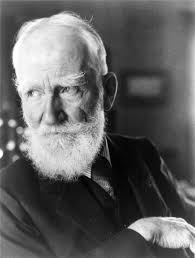While the exact wording remains an open debate, the phrase "youth is wasted on the young" is largely attributable to George Bernard Shaw, the prodigious Irish playwright.
And yet, while the middle-aged set may believe this idea to be absolutely true, given their perspective that comes only from years of living and experience, what they also have that the young do not, is this: unrivaled self-esteem.
If you are a wise adult of many years, you may have already sensed this. But now you have some supporting evidence to lean on, courtesy of a recent study published in the journal Psychological Bulletin. In conducting a meta-analysis from 191 research articles "based on 331 independent samples, including data from 164,868 participants," scientists determined that an individual's self-esteem peaks at roughly 60 and remains at that level until age 70.
The study's co-author attributes that to many factors.
"Midlife is, for many adults, a time of highly stable life circumstances in domains such as relationships and work," said University of Bern psychology professor Ulrich Orth, as quoted by Time. "Moreover, during middle adulthood, most individuals further invest in the social roles they hold, which might promote their self-esteem. People take on managerial roles at work, maintain a satisfying relationship with their spouse or partner, and help their children to become responsible and independent adults.”
For the average person, self-esteem, as you might expect grows from school age (ages 6 to 12) to adolescence (ages 13-17) and through the early years of adulthood (starting at 18), does not decline – despite what many believe during the tumult of teen years – and then "increases strongly," the authors write, until roughly age 30. From that stage, it becomes more gradually pronounced over the next three decades before that period of high-level satisfaction and reflection engages.
The study, titled "Development of self-esteem from age 4 to 94 years: A meta-analysis of longitudinal studies," was published online July 16.
 After age 70, researchers note a decline of self-esteem until age 90, when the falloff increases even further. From 70-90, this period can often be one when an individual loses a loved one and when social interaction with close friends becomes more difficult due to age and/or infirmity. These are among the conclusions that the authors cite in their work.
After age 70, researchers note a decline of self-esteem until age 90, when the falloff increases even further. From 70-90, this period can often be one when an individual loses a loved one and when social interaction with close friends becomes more difficult due to age and/or infirmity. These are among the conclusions that the authors cite in their work.
"The meta-analytic findings clarify previously unresolved issues about the nature and magnitude of self-esteem change in specific developmental periods (i.e., childhood, adolescence, and old age)," they wrote, "and draw a much more precise picture of the life span trajectory of self-esteem."
Shaw (pictured) wrote more than 60 plays during his prolific career, which spanned the late 19th and early 20th centuries. And yet, while he was awarded the Nobel prize in literature in 1925, as well as an Academy Award in 1938 for the screenplay to his work, Pygmalion, those six words in recognition of youthfulness remain particularly noteworthy. Now, based on this new scientific insight, maybe someone might want to take another shot at saying something equally quotable about the appreciation of self about a life well lived.




